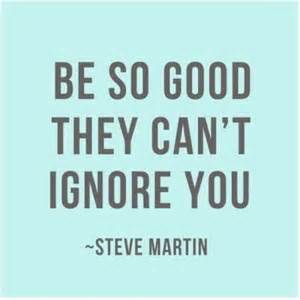Are You Searching For A New Career?
 Are you currently looking for a new career? If so, you’re are likely becoming more aware each day of how difficult it can be. At times it can seem like the best option is to settle for the first thing that comes along.
Are you currently looking for a new career? If so, you’re are likely becoming more aware each day of how difficult it can be. At times it can seem like the best option is to settle for the first thing that comes along.
However, you can land your dream job and it doesn’t have to be as hard as you may think. In fact, with the right technique, you could have your dream career in no time at all.
Check out these helpful tips from Bankrate.
With unemployment at a four-year high, job competition is stiff these days. But whether you’re unemployed or simply unhappy in your current position, it’s still possible to find new career opportunities.
Just ask Julie Cajigas, who received two job offers after job hunting for about two months (a short job search by most people’s standards). She started her new job in mid-July as associate director of development and marketing for a nonprofit organization in Cleveland.
“I think even though it’s a tough economy, if you’re good at what you do and you take the time to present yourself well, you’ll find a job,” she says.

1. Balance dream opportunities with open-mindedness
In an ideal job market, you would narrow your search to a couple of favorite companies and focus on applying for opportunities with them. But as Alexandra Levit, career expert and author of “Success for Hire,” points out, “people have to be a little more flexible” in this economy. Be willing to explore opportunities outside of your industry or with companies that aren’t name brands.
Cajigas, who had been working corporate communications before she switched to a nonprofit, says she followed job boards like Monster.com and CareerBoard.com and “scanned each day’s jobs from start to finish, because sometimes it’s hard to anticipate what a position title will be.”
The job she recently accepted was advertised through her alma mater’s job board.
“A lot of (career information is) offered for free to alumni,” she adds.
2. Polish your resume and cover letter
You want your resume and cover letter to present you in the best possible light. Cajigas recommends showing your materials to a friend for proofreading before you send them to the company.
“It’s kind of like a take-home test,” she says. “Why would you fail a take-home test?”
Levit encourages job-seekers to rewrite their resume with the job description in mind.
“Make sure you’re clearly addressing those issues in your resume,” she stresses. “(That) probably means tweaking it for each opportunity that comes along. If you’re applying for jobs that aren’t in your industry, I suggest developing a functional-based resume. List your experience by skills — project management, sales, marketing, budgeting — so they’ll be able to easily see how your experience translates (to the new industry).”

3. Network your way in
Jason Alba, CEO of job search Web site JibberJobber.com, recommends using LinkedIn to find employees at the company where you’d like to apply.
“Let’s say I want to work at American Express,” he explains. “I would do a search for American Express on LinkedIn and see who on my network is somehow connected to the company.”
Rather than asking for a job right away, Alba recommends that you present yourself as a professional who is researching opportunities at that company.
“A professional is not a begging, needy job seeker,” he emphasizes. “Let’s say I find five open positions at American Express. That gives me something to talk to (the current employee) about.”
“I can ask about those positions and find out how long they’ve been open, what the department is like, what issues they might have and more. Better yet, if you can find openings that are not advertised, you won’t be competing with hundreds of other job applicants.”
Only after you’ve developed a rapport with the person should you ask them to review your resume and cover letter.
“That might happen in the first call, or it might happen a few calls or e-mails later,” Alba says. “If I can tell (the person) isn’t going to have the time or interest in helping, I won’t ask him. I’m hoping my conversation will help me get good information about the position or department or players or issues, and if he has clout with HR or the hiring manager, perhaps he can put in a good word for me or do an introduction.”
4. Do your research before the interview
Before the interview, you should gather as much information about the company as you can. Read any press releases, media coverage, annual reports and whatever other information about the company and industry you can get your hands on. You should also find out as much as you can about the people you’re interviewing with.
“There’s nothing wrong with asking the HR person or recruiter who you’ll be interviewing with,” says Levit. “Try to Google (them beforehand).”
She adds that finding out what type of interview you’re having (a panel interview, one-on-one interview, behavioral interview, test and so on) will help you feel more prepared.
5. Dress for success
Wearing the right outfit will help you feel cool and confident. But Levit cautions job-seekers against wearing something too cool or comfortable.
“Even if the company is business casual, be business professional,” she says. “I would say even if people in the company say ‘everyone wears jeans,’ don’t wear jeans (to your interview). I think that it’s too risky.”
Levit also warns against bright colors or flashy jewelry and neckties when you’re interviewing at a conservative company. She adds that ladies should “watch the heel height. It’s better to look a little shorter than be constantly tripping.”
Image Credit: sellorelse
To see even more tips and the rest of this helpful article, Bankrate



